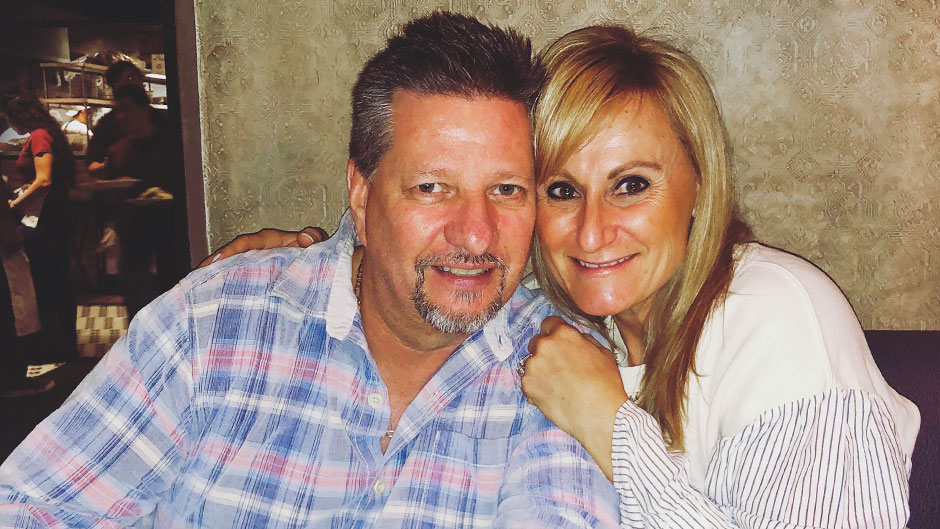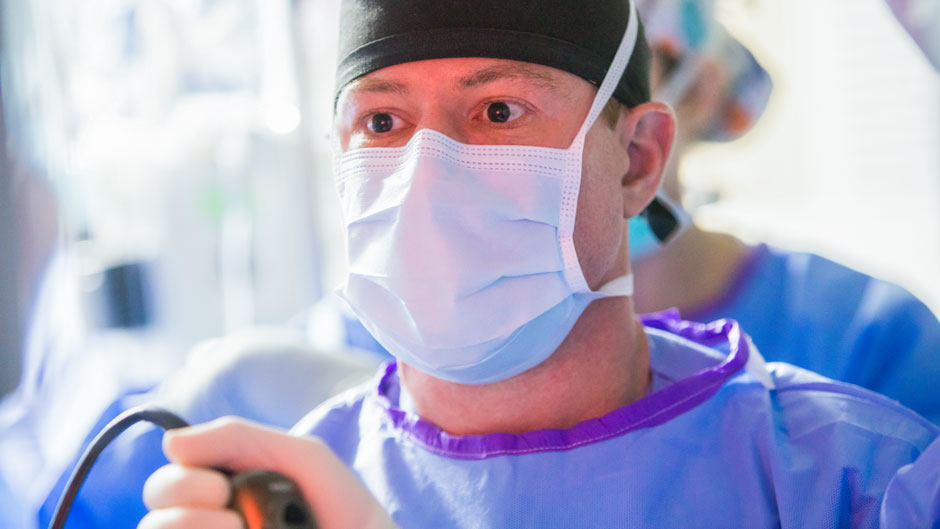Last December, Beth Laggan realized that something was wrong with her husband, Richard.
“He started acting differently and was fatigued all the time, sometimes sleeping until after noon,” she said. As Richard’s symptoms worsened, she went to several doctors in South Florida who prescribed heart medications and hormonal treatments for the 58-year-old Coral Springs resident.
Richard Laggan was then taken to the Sylvester Comprehensive Cancer Center—part of the University of Miami Miller School of Medicine, where an MRI scan in March revealed a large malignant tumor in the frontal lobe of Richard’s brain. At that point, he was referred to Dr. Ricardo J. Komotar, a top neurosurgeon in Florida, and director of the Sylvester Comprehensive Cancer Center Brain Tumor Initiative, which offers patients with benign and malignant tumors personalized care, access to clinical trials, leading-edge medical and radiation treatments, and minimally invasive surgical techniques that enhance outcomes.
Komotar, who is also director of surgical neuro-oncology, evaluated the brain scans, which showed the tumor had grown to 5.5 centimeters (2.1 inches). He spoke with the Laggans during an April 13 telehealth consultation, as regular office visits had been suspended because of the coronavirus pandemic.
Three days later, Richard was admitted for surgery at UHealth Tower, the health system’s flagship hospital. “It was difficult for me to drop him off for brain surgery and not be able to go into the hospital,” said Beth Laggan. “But I understood the need for protocols that limited visitation.”
To address COVID-19 safety concerns, the University of Miami Health System was taking and continues to take the necessary precautions for patients to receive care in a safe environment.

Performing the Surgery
The next day, Komotar performed an “awake” tumor removal with intensive language and motor mapping to ensure an aggressive resection that maintains neurological functional and quality of life.
“Because the tumor was near the language and motor movement centers in his brain, Richard was kept awake most of the time so we could be sure there was no damage to the nearby healthy tissue,” Komotar explained. “This is an excellent example of the specialized neurosurgeries our team does every day while keeping patients safe during these challenging times.”
“UHealth Neurosurgery is home to luminary brain and spine surgeons,” said Dr. Allan D. Levi, professor and chairman of neurosurgery; Robert M. Buck Distinguished Chair in Neurological Surgery; and chief of neurosurgery, Jackson Memorial Hospital. “We are proud that we can provide nationally recognized excellent care with the utmost safety despite the challenges as our country navigates this pandemic.”
Telehealth Visits
After his surgery, Richard Laggan was able to return home the next day, on April 17. He also is receiving long-term, follow-up care with a Sylvester neuro-oncology specialist as well as chemotherapy and radiation.
Komotar has continued to monitor Richard’s condition through UHealth Virtual Clinics, which is the health system’s telehealth platform. “Even during the COVID-19 crisis, we have been able to provide top-notch medical care to our patients,” the neurosurgeon said.
Reflecting on her husband’s treatment and recovery, Beth Laggan said, “Dr. Komotar has a warm, bedside manner and really cares about his patients. Whenever I have a question, I email him and get a response right away. It’s been a roller coaster for us, but I know he’s in good hands.”
Learn more about UHealth Neurosurgery’s innovative treatments and services.

